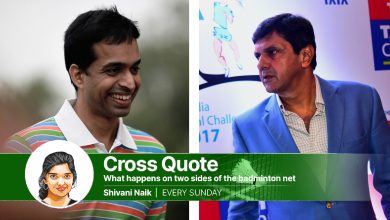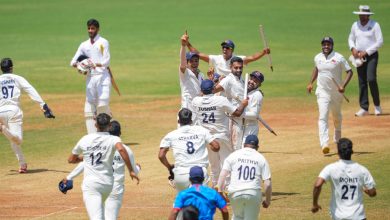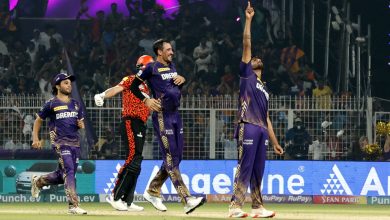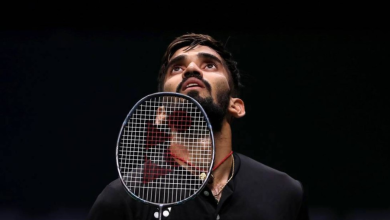French Open: Sabalenka-Svitolina clash brings Russia-Ukraine conflict to forefront as Grand Slam continues to be affected geopolitics

Press conferences and the French Open do not make for a healthy combination. In 2021, Naomi Osaka caused major controversy after she decided to snub post-match press obligations to protect her mental health, following which mental strife and injury brought the career of the four-time Major champion to a halt.
Two years on, on Sunday, Belarus’ Aryna Sabalenka got past a tetchy fourth-round encounter against Sloane Stephens, and then skipped the obligatory press conference for the second time in succession. Sabalenka’s reasons were the same as Osaka, but have been part of a wider headache for organisers throughout the event.
After being pressed a Ukrainian journal following her first two wins at Roland Garros to speak about her support of Belarusian president Alexander Lukashenko – Belarus is a key supporter of Russia in the war, with the country’s territory being used in the military offensive – Sabalenka declared she will snub the press because she “did not feel safe” before the media.
Aryna Sabalenka of Belarus reacts during her fourth round match of the French Open tennis tournament against Sloane Stephens of the U.S. at the Roland Garros stadium in Paris, Sunday, June 4, 2023. (AP Photo/Thibault Camus)
After the first round, according to the New York Times, Sabalenka was asked Ukrainian writer Daria Meshcheriakova what her message to the world was about the war, to which she responded: “Nobody in this world, Russian athletes or Belarusian athletes, support the war. Nobody.” Three days later, the same writer pressed her on her closeness to Lukashenko, claiming she had signed a letter of support for the Belarusian president in 2020 and that she had participated in New Year’s Eve celebrations with him. The letter has not been made public, but images of her with Lukashenko have been doing the rounds on social media.
The controversy around the decisions of Sabalenka, the World No. 2 who is one of the favourites to lift the title in Paris, might spark a debate on whether athletes should be compelled to make their political views public, especially in cases where they could be under threat of intimidation. In this case, though, it has reopened a wider debate about the role of sports in the war in Ukraine, especially considering Sabalenka’s quarterfinal opponent on Tuesday.
Elina Svitolina was never the most popular player on tour. Her game, based around elite defence, solid movement and dogged patience did not produce highlight-worthy shotmaking. With the sidelining of counterpunching, a playing style that was once at the summit of the game through the likes of Simona Halep and Carolina Wozniacki, the women’s tour has begun to be dominated more first-strike attacking tennis of the mould of Iga Swiatek and Sabalenka.
But over the last week in Paris, there is no player getting a greater reception from stadium crowds than Svitolina, who attempts to reach a first French Open semifinal against Sabalenka on Tuesday.
The 28-year-old has plenty going for her to make her a crowd favourite. Her story, of returning from successful pregnancy to tennis only in April and making it to the quarterfinal of the first Major since; her husband, Gael Monfis, an icon of this generation of French tennis who himself played out a thrilling opening-round win in Paris before withdrawing due to injury; and her nationality, being one of only two Ukrainians, alongside Lesia Tsurenko, to make it to the final eight at Roland Garros.
Feeling at home
The kind of support the French are known to give their own – and to Monfils – has been extended to Svitolina this week, which came to the fore following her win on Sunday when the Parisian crowd booed her opponent, Russia’s Daria Kasatkina, off the court. Svitolina had confirmed that as someone representing her country at the elite level, she will not shake hands with Russians or Belarusians, but smiled and put her thumbs up in acknowledgement of Kasatkina, who is one of, if not the only, professional tennis players to have actively spoken out against the war, calling it “a full nightmare”, per Reuters.
Russia’s Daria Kasatkina gestures at the net after losing her fourth round match against Ukraine’s Elina Svitolina REUTERS
Later, Kasatkina took to Twitter to express her disappointment at the French crowd. “Yesterday, I was booed for just being respectful of my opponent’s position not to shake hands. Me and Elina showed respect to each other after a tough match but leaving the court like that was the worst part of yesterday. Be better, love each other. Don’t spread hate,” she wrote.
This is not the first handshake snub to cause a storm at the French Open this year. Last week, after Sabalenka made light work of Ukraine’s Marta Kostyuk, defeating her 6-3, 6-2 in the first round when she was given the dinction of opening tournament play on Court Philippe Chatrier, Kostyuk snubbed her at the net to a chorus of boos in the stadium.
The remaining Russians in the French Open draw have made their own voices heard. Anastasia Pavlyuchenkova, who defeated Elise Mertens in three sets on Sunday to book her place in the last eight, had spoken out against the war in a strongly-worded message on social media, which she later took down. When asked about the tweet in post-match press, Pavlyuchenkova revealed it was the decision of her PR person.
Karen Khachanov has stayed mum on the Russian invasion of Ukraine, but caused a storm at the Australian Open earlier this year when the Russian, with roots in Armenia, wrote a message on television cameras supporting Armenian separats in a conflict with Azerbaijan over the control of the Nagorno-Karabakh territory. Khachanov will face Novak Djokovic for a place in the semifinal on Tuesday, and the Serb has himself caused controversy when he wrote a similar message on television cameras with an appeal to “stop the violence” amid tensions in Kosovo.
In the backdrop of all of that geopolitical tension, a dominant- looking Sabalenka, who has matched her easy power with patience to become a major contender in Paris, takes on a resurgent Svitolina, who, buoyed immense crowd support, might have an unlikely title charge brewing.
The duo’s contrasting playing styles, and the underlying tension, should make for essential viewing.







